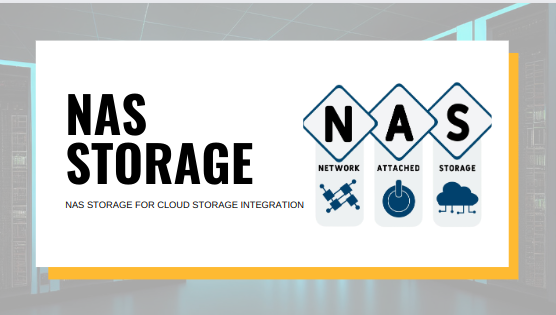If you are looking for a powerful and efficient way to store and share data, then Network Attached Storage, commonly referred to as NAS storage, might be the solution that you need. NAS storage is a kind of data storage technology that allows multiple users and clients to access and share the data stored in a central location. NAS storage is becoming increasingly popular in both personal and business environments, and for good reason. In this blog, we will explore what NAS storage is and the benefits it offers.
What is NAS storage?
NAS storage is a storage device that connects to your network, allowing multiple users and clients to access and store files. Unlike traditional storage devices, NAS storage is not attached directly to a computer or server. Instead, it operates as a standalone device that can be accessed over a network. With NAS storage, users can access files from any device on the same network. NAS storage can be used to store a wide range of data types such as media files, business data, personal data, and more.
Benefits of NAS storage
There are many benefits to using NAS storage, particularly in business settings where data sharing and protection are paramount. Here are some of the key benefits:
- Data storage and backup: NAS storage offers centralised storage, which makes it easy to organise large amounts of data. NAS storage also makes it easy to backup data by creating regular snapshots of your data or by creating a backup of the entire NAS device.
- Data sharing: With NAS storage, data can be accessed from any device on the network, making it easier for team members to share data and collaborate on projects.
- Easy to manage: NAS storage is easy to set up and manage. You can configure the device using a web browser and access the settings from anywhere on the network. You can also manage user permissions to control who has access to the data stored on the NAS device.
- Scalability: NAS storage offers easy scalability, allowing you to start with a smaller device and expand as your storage needs grow.
Choosing the right NAS storage
When choosing a NAS storage device, there are several factors to consider, including:
- Storage capacity: You should choose a device that has enough storage capacity to meet your current and future needs.
- Speed: Look for a device that offers fast read and write speeds, especially if you plan to use the device for streaming media files.
- Number of bays: Consider the number of drive bays that the device has. The more drive bays, the more storage options you have.
- Budget: NAS storage devices can vary greatly in price, so it's important to choose one that fits within your budget.
Conclusion
NAS storage is an excellent choice for anyone looking for a robust and scalable data storage solution. It offers many benefits, including centralised storage, easy data backup, data sharing, and easy manageability. When choosing a NAS storage solutions device, be sure to consider factors such as storage capacity, speed, number of bays, and budget. Whether you are a small business, nonprofit, educational institution, or a home user, NAS storage can help you store and share data more efficiently.
